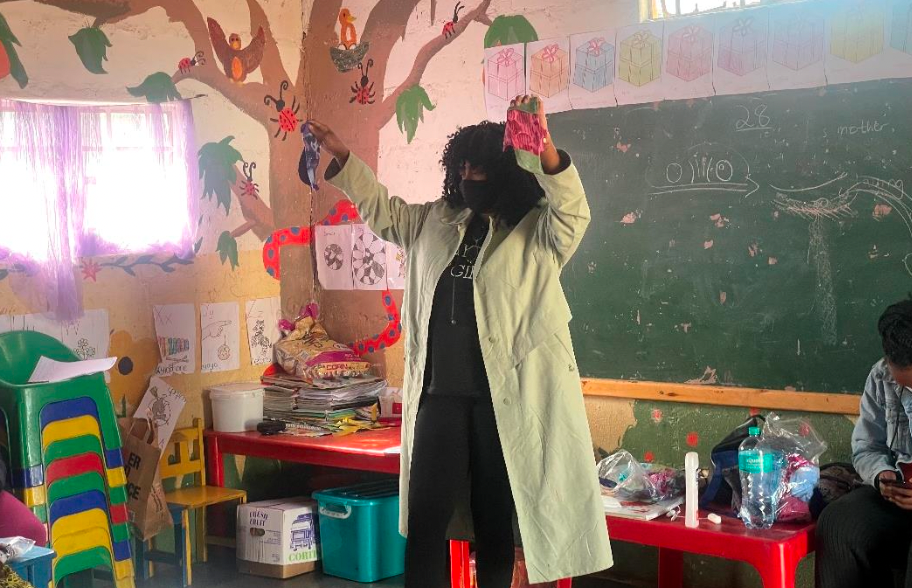Eswatini: Let sex education and adolescent grow together healthy

People in different countries and with different cultural backgrounds would have different perspectives on “sex”. In more conservative societies, it’s often awkward to talk or teach about sex in the classroom. In Taiwan, many students of the previous generation have the experience of many chapters being “skipped” in health education courses. However, as society moves on and develops, the age of people becoming pregnant is lowering, while the number of teenagers getting infected with STDs is rising. These reasons motivated the local educational system to implement courses and announcements on related subjects, which results in gradually improving the situation of tabooing the topic of sex.
In Eswatini, the need for sex education and sexually transmitted diseases (STD) prevention and education seems dire. According to the statistics done by the United Nations Population Fund (UNFPA), the rate of adolescents aged 15-19 becoming pregnant was 8.7% in 2014. Moreover, in the 2020 report done by the Joint United Nations Programme on HIV/AIDS (UNAIDS), the transmission rate among young males is 4.7%, while 12.2% among young females.
Fortunately, with the number of people receiving treatment is rising, the death and infection rate for HIV is gradually decreasing. However, the transmission rate of HIV among the young population remains high, which remains one of the issues for the country to develop.
Based on the stated reasons, TFCF Eswatini Branch Office started to work with different local institutions on developing sex education for adolescents in 2019. Beginning this year, we worked with our local partners to implement the vision of local career development. During our programs, we noticed Eswatini locals’ perspectives on sex and the content in sex-ed classes are quite different from those in Taiwan.
First, Eswatini’s attitude toward the topics of sex remains rather conservative. The adults generally don’t want to discuss the topics publicly, and the schools don’t want to focus on health education either. This creates a situation in which adolescents lack knowledge about the changes in their bodies during puberty. Which is a different situation from that in Taiwan where most of the students would have “at least some basic ideas about their bodies.” Therefore, we had to consider the different needs and situations that fit the country’s context and adjust the content of the course and the way of training at the same time.
In many countries in Africa, the patriarchal idea that “men should work, while women should stay home” remains rooted in people’s minds. Many women are dependent on men financially and lack opportunities for education, which results in low self-esteem. Therefore, the courses there are started with “how to know yourselves” to “enhancing ones’ self-worth” and others, then move on to the discussion about the physical changes.
The local culture is relatively close-minded, so the course contents sometimes become shocking to the students. For example, on the discussion about menstrual cramps, we talked about the variety of reasons that cause the cramp, and the variety of ways to relieve the pain. One of the ways we mentioned is to seek medical help when the pain becomes unbearable, and because the social norm is rather conservative, many students showed signs of panic when hearing about words like seeking medical help.
The last part of the course concerns safe sex. But, due to the limitation imposed by the social value and religious reasons, the discussion could not dive deep into the topic. So far, the education on safe sex in Eswatini remains limited. Most courses stop at “avoid pre-marital sex” as well as providing condoms in public bathrooms.
Besides formal education, we also teach adolescent girls the proper way to use reusable pads. Single-use tampon pads are relatively expensive in Eswatini and could be a high cost for families. The situation could result in period poverty and affect emotional and biological health.
Considering these reasons, we prepared reusable pads for every adolescent girl who attended the course, and we taught them how to clean them. This can not only make the pad last longer but also ensure the hygiene and cleanness of the pad.
To let our program get closer to the needs of the people, we learned the pros and cons of the different ways to conduct the program and improve the program on the way. We hope the sex education courses can take root in Eswatini in the future, and let every adolescent grow up healthily.
If you want to support our work in Eswatini, you can join us here.
